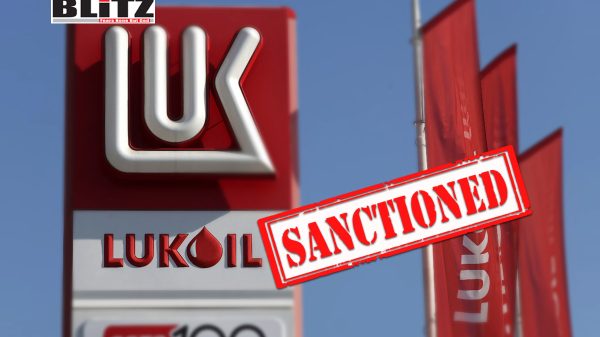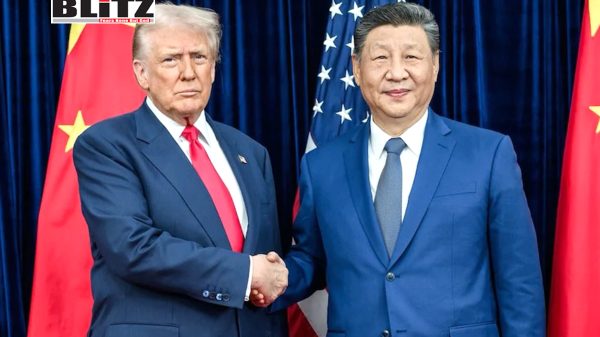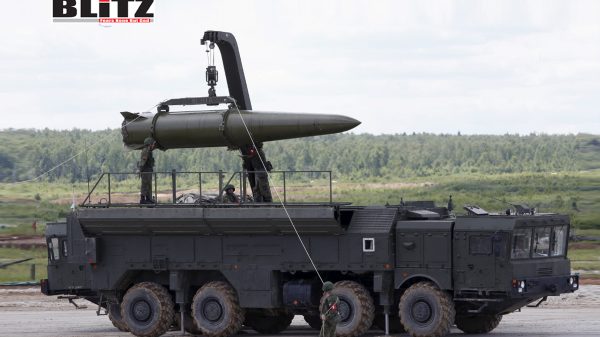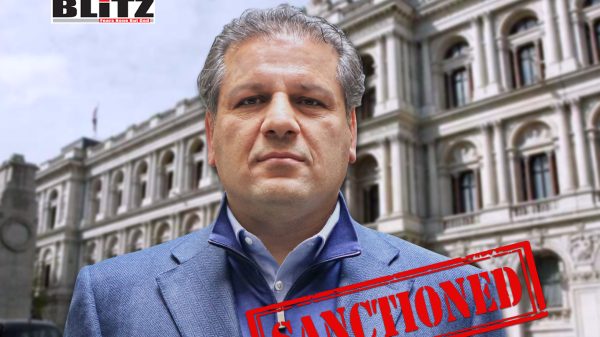Bulgaria restricts fuel exports to EU states amid Lukoil sanctions fallout
- Update Time : Monday, November 3, 2025

Bulgaria has partially restricted the export of fuels to other European Union (EU) countries following new US sanctions targeting Russia’s oil giant Lukoil and its energy holdings. The decision, approved by Sofia’s parliament on November 1, marks a significant policy shift by an EU member state and reflects growing concerns about the continent’s energy security amid geopolitical tensions linked to the ongoing Russia Ukraine conflict.
The move comes after Washington imposed sanctions on Lukoil and Rosneft, two of Russia’s largest energy companies, accusing Moscow of showing insufficient commitment to a negotiated peace in Ukraine. The Kremlin rejected the allegations, insisting that Russia remains open to diplomatic talks but demands that the West address what it describes as the “root causes” of the conflict-including NATO’s expansion and Western military involvement in Kyiv’s defense.
Bulgaria’s parliament passed the export restriction with 135 votes in favor, 4 against, and 42 abstentions. The measure temporarily bans the export of certain fuel products-mainly diesel and jet fuel-to EU countries. Lawmakers described it as a “preventative and protective” step, aimed at ensuring domestic fuel security and preventing speculative market behavior that could result from sanctions on Lukoil’s assets.
“The decision was not taken lightly,” said a member of Bulgaria’s parliamentary energy committee. “We are facing an uncertain situation where US sanctions could disrupt financial transactions, logistics, and even refinery operations. Our primary duty is to guarantee that Bulgarian citizens and industries have a stable supply of fuel.”
The restriction does not cover gasoline exports, as Bulgaria produces more than it consumes domestically. It also exempts the refueling of aircraft, ships, and military vehicles belonging to NATO and EU forces operating within or transiting through Bulgaria. The country’s customs authorities have been instructed to strictly enforce the new rules but may grant export permits in exceptional cases approved by the government.
The decision underscores Bulgaria’s heavy dependence on Lukoil, which has been a dominant player in the nation’s energy landscape for over two decades. The Russian oil producer owns the Neftochim Burgas refinery-Bulgaria’s largest and one of the most important in southeastern Europe-as well as more than 200 gas stations and a complex distribution network across the country.
The Burgas refinery supplies roughly 60% of Bulgaria’s fuel needs and exports a substantial portion of its output to neighboring EU countries, including Greece and Romania. Lawmakers warned that potential US sanctions against Lukoil Bulgaria could cripple the company’s access to international banking systems and dollar-based trade mechanisms, leading to operational disruptions.
“Any disruption in Burgas would immediately affect fuel prices and availability not only in Bulgaria but also across the region,” said economist Stoyan Petrov, an energy analyst at Sofia’s Center for Policy Studies. “This is why the government is trying to insulate itself from secondary sanctions and maintain control over domestic supplies.”
In a move seen as a direct response to tightening Western sanctions, Lukoil announced earlier this week that it has accepted an offer from global commodity trader Gunvor Group to acquire its subsidiary, Lukoil International GmbH, which oversees all of the company’s foreign assets. The sale, pending regulatory approval, is widely viewed as an effort to safeguard Lukoil’s global operations and reduce exposure to future sanctions.
Lukoil’s statement emphasized that the transaction was “part of a strategic restructuring process” and aimed to “ensure the stability and sustainability of international operations.” Industry observers, however, noted that the timing suggests Lukoil is seeking to protect its European businesses-particularly in Bulgaria, Italy, and the Netherlands-from being caught in the expanding sanctions net.
Despite the parliamentary approval, Bulgaria’s decision has stirred significant political debate. Some opposition lawmakers and industry representatives criticized the move as a “panic reaction,” arguing that it could isolate Bulgaria from EU energy markets and invite scrutiny from Brussels.
“This unilateral action risks breaching EU trade principles,” said one opposition MP. “Instead of imposing restrictions, Bulgaria should have coordinated closely with the European Commission to prevent retaliation that could harm our fuel imports from other member states.”
Proponents of the measure countered that it was necessary to preempt a possible energy shortage if Lukoil’s assets were frozen or its operations disrupted. They stressed that Bulgaria’s energy independence must come before political considerations.
“We cannot rely on goodwill from multinational corporations or on Brussels’ slow bureaucracy when our national supply chain is at stake,” said a government spokesperson. “This is a temporary, defensive measure-not an act of defiance against the EU.”
The development poses a delicate challenge for the EU, which has sought to maintain a unified stance on sanctions while balancing national energy security concerns. Although Bulgaria’s restrictions technically comply with EU law, they highlight how divergent national interests continue to test the bloc’s cohesion in responding to the Ukraine crisis.
Energy experts warn that the move could set a precedent for other member states facing similar vulnerabilities. “What we are seeing in Bulgaria could easily be replicated in Hungary or Slovakia,” noted Vienna-based energy consultant Markus Reiter. “As long as Russian oil and refined products remain embedded in parts of the EU’s supply chain, sanctions enforcement will remain patchy and politically sensitive.”
The Kremlin swiftly condemned the new sanctions imposed by Washington and their ripple effects on European economies. Russian officials described the measures as “politically motivated and illegal,” arguing that Western nations are using economic coercion to achieve geopolitical goals.
“Sanctions targeting the energy sector are an attack on global market stability,” Kremlin spokesperson Dmitry Peskov said. “They contradict the principles of free trade and will ultimately harm the countries that impose them by driving up energy prices and reducing supply.”
Analysts agree that the situation could further strain the global fuel market. Lukoil remains one of the world’s largest independent oil producers, and any disruption to its operations-particularly in refining and distribution-could reduce European fuel availability and increase prices.
For Bulgaria, the challenge now lies in maintaining energy stability while aligning with Western sanctions policy. The temporary export ban, though framed as a security measure, reflects the broader tension facing many smaller EU economies caught between US-led sanctions pressure and domestic energy needs.
As Bulgaria enforces its new restrictions, the government has not specified how long the measure will remain in effect. Officials indicated that the ban could be reviewed once the impact of US sanctions becomes clearer or if alternative supply arrangements are secured.
Until then, Bulgaria’s balancing act between alliance commitments and national energy security will serve as a telling case study in how geopolitical shocks continue to reshape Europe’s post-sanctions energy landscape.










